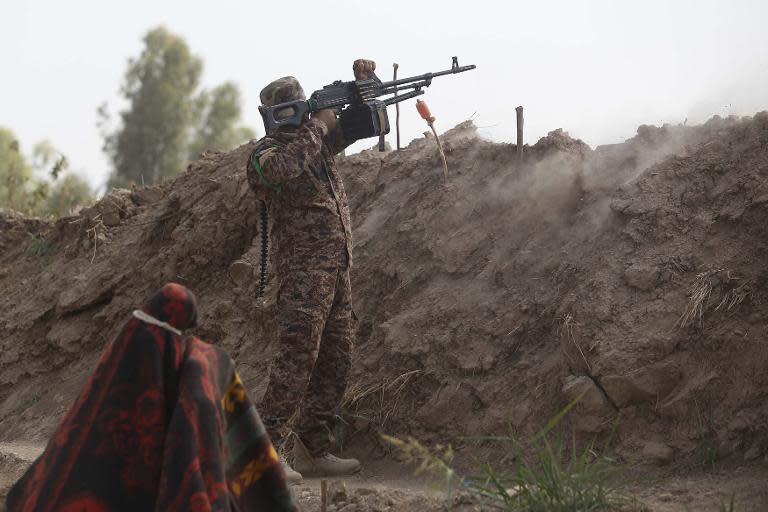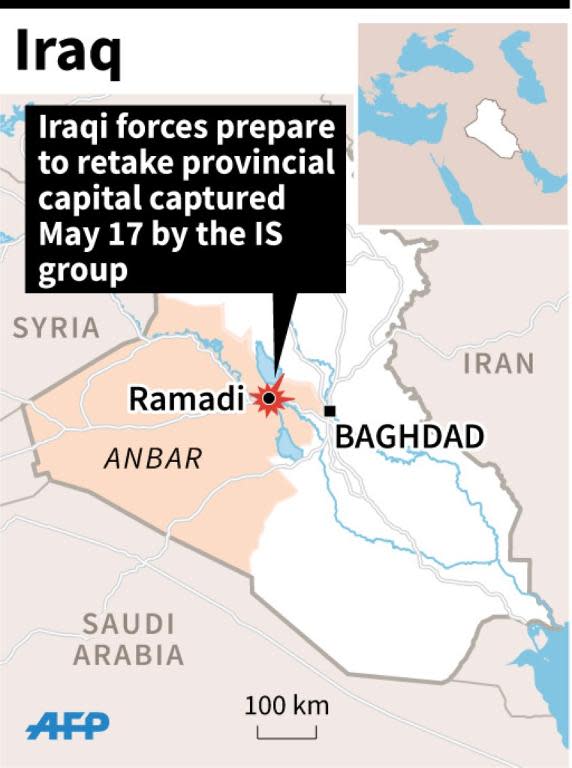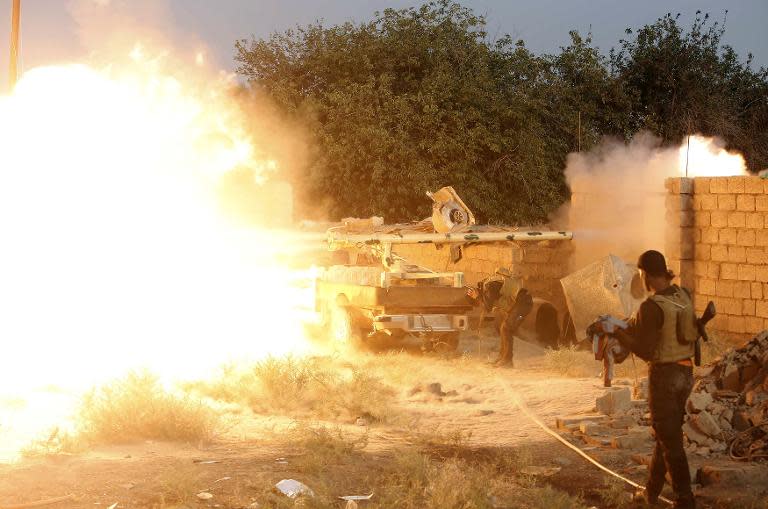Iraqi forces take positions on Ramadi outskirts
Iraqi forces took up positions around Ramadi on Wednesday, seizing two districts after clashes with jihadists. The Islamic State group also came under pressure in neighbouring Syria, where Kurdish fighters expelled the jihadists from more than a dozen Christian villages in the northeast. Iraqi forces fought IS militants on the southern outskirts of Ramadi, the provincial capital of Iraq's western Anbar province which the jihadists seized on May 17. They moved into the districts of Taesh and Humeyrah and also entered the neighbouring Anbar university compound, an army colonel on the ground told AFP. "Iraqi security and Hashed forces took control of both neighbourhoods. They also managed to enter the university but have yet to liberate it," he said. Hashed al-Shaabi is an umbrella group for mostly Shiite militias and volunteers that the government called in after Ramadi fell to IS. The recaptured areas are outside the main road circling the city from the south and government forces continued their effort to seal off Ramadi, but an assault to retake it had not started in earnest. The three-day IS blitz, which saw the city fall after a year and a half of resistance and dealt Baghdad its worst military setback in almost a year, led to a chaotic retreat of the security forces. Iraqi Prime Minister Haider al-Abadi had been reluctant to send in the Hashed al-Shaabi. With backing from the United States, he had favoured training up local tribal forces to be incorporated in the Hashed, a solution seen as more palatable to the province's overwhelmingly Sunni population. But the abysmal performance of the security forces in Ramadi earlier this month left him with no other options and Shiite militias are now heavily involved in operations to pin back IS in Anbar. - Codename controversy - The Hashed's choice of codename for an operation launched on Tuesday from the neighbouring province of Salaheddin to cut off IS supply lines in Anbar raised fears of sectarian tensions. The operation was dubbed "Labaik, ya Hussein", which roughly translates as "We are at your service, Hussein" and refers to one of the most revered imams in Shiite Islam. The Pentagon, which is also active against IS in Anbar with air strikes, was clearly frustrated with the choice of an explicitly sectarian codename for an operation into Iraq's Sunni bastion. "I think it's unhelpful," spokesman Colonel Steven Warren said. "We've long said... the key to victory, the key to expelling ISIL from Iraq is a unified Iraq," Warren said, using an alternative acronym for IS. Abadi, who has strived to paint the Hashed as a cross-sectarian force by including Sunni fighters in it, did not immediately comment on the controversy. The operation launched on Tuesday involves 4,000 men, including from the security forces, heading south from Salaheddin to sever IS supply routes to Anbar. The jihadists control most of the province and the government holds just a few isolated pockets. - Assyrian villages - According to aid groups, at least 55,000 people fled the latest wave of fighting in Ramadi and some of them have remained stranded in dangerous areas. They are asked to produce sponsors in neighbouring provinces to vouch for them, a measure meant to mitigate the risk that displaced families may be infiltrated by IS. But the restriction is forcing some people to head straight back into battle zones and the International Rescue Committee said sponsorships could be bought for a few hundred dollars. The group argued that the phenomenon put an "unacceptable financial burden on an already extremely vulnerable population" and undermined the security rationale of the measure. In the other half of IS' self-proclaimed caliphate, Kurdish forces retook Assyrian Christian villages the jihadists had seized earlier this year, a monitor said. "Following a 10-day offensive, Kurdish fighters took control early this week of 14 Assyrian villages that IS had controlled since February," said Rami Abdel Rahman, director of the Syrian Observatory for Human Rights. An Assyrian rights activist said the counteroffensive in the northeastern province of Hasakeh was made possible by an intensive campaign of air strikes by the US-led coalition.

 Yahoo Finance
Yahoo Finance 



